Content

Over the past year, Google has significantly shaken up its search results. In 2024 and early 2025, we saw several major algorithm updates that changed the rules of the game for SEOs, content marketers, and website owners. The main focus is on quality, expertise, and real value for the reader.
The search engine has become even more demanding of content, UX, and E-E-A-T (experience, expertise, authority, and trustworthiness). This means that template texts, SEO stuffing, and “watered-down” content no longer work.
In this article, we analyze what Google SEO updates were released from March 2024 to March 2025, how they affected search results and traffic, and what to do to avoid falling out of the top (and if you do, how to regain your position).
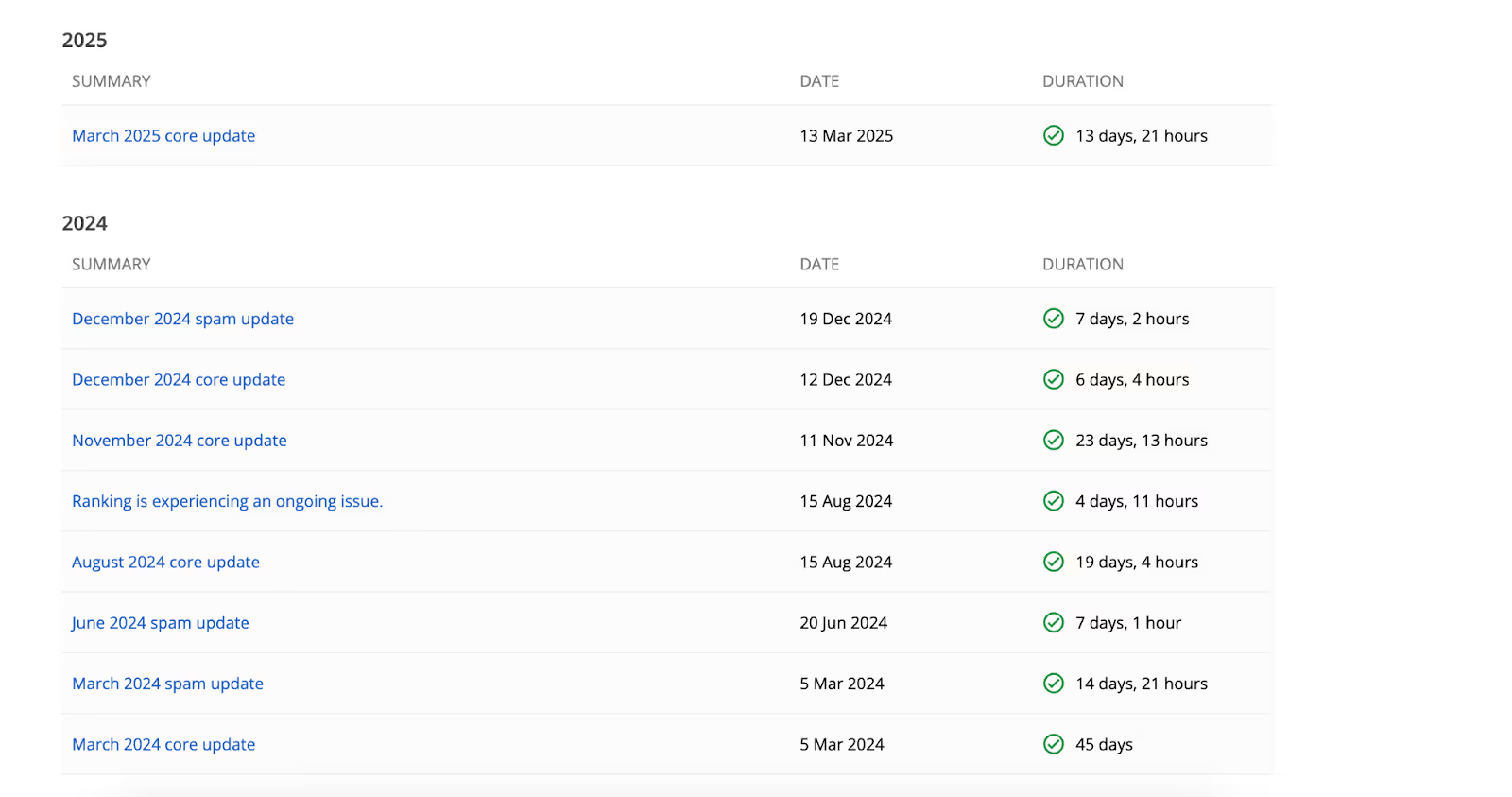
When: March 5 to April 19, 2024
Duration: 45 days
What happened: Google updated the search core, several key algorithm systems, and introduced new anti-spam policies.
This Google core update is, without exaggeration, historic. Google has promised to reduce the amount of low-quality content in the SERPs by 40%. And indeed, many sites have lost positions or traffic, especially those that:
Google has once again emphasized that you need unique and useful content. And it should be based on E-E-A-T: experience, expertise, credibility, and reliability.
It's official: Google aims to reduce “unoriginal, low-quality content” in its search results by 40%.
See notes to Google system releases.
The SEO community is discussing that Google's new algorithms are closely related to the introduction of Search Generative Experience (SGE) - AI blocks in search. They answer queries immediately in the search results, displacing similar content.
Bernard Huang explains: "Google has started to penalize monotony, especially in topics where the answers are similar to each other. That's why Reddit and Quora started to grow so rapidly - they have unique opinions, experiences, and contexts.”
What else has changed:
Google hasn't given a clear checklist, but the reaction of the SEO community can be used to draw up unofficial “rules of the game”:
Pandu Nayak, Vice President of Search at Google, in an interview with The Verge explained in more detail who the current latest google seo updates are aimed at:
One of our clients operating in the auto parts niche experienced a significant drop in traffic after the March Google core algorithm update.
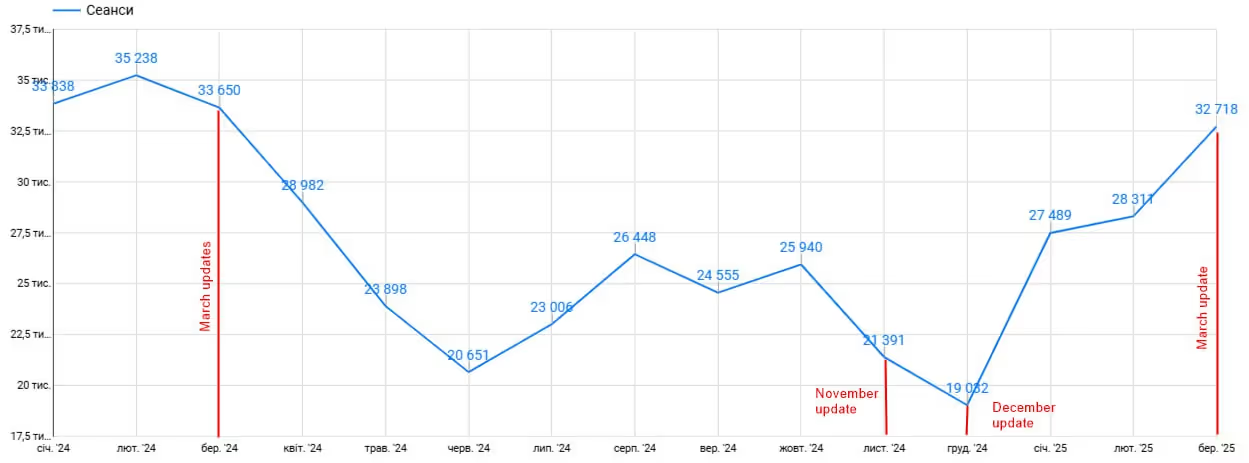
The site suffered from an overly broad catalog, duplicate pages, and a poor structure. We managed to restore traffic only after the December update - after major changes that we implemented back in November.
What we did:
An interesting situation happened to another client in the used car category. At the time of the March 2024 update, the site even showed an increase in traffic. However, after the new Google SEO update was completed, the positions began to sink - and declined gradually throughout the year. The recovery is still ongoing.
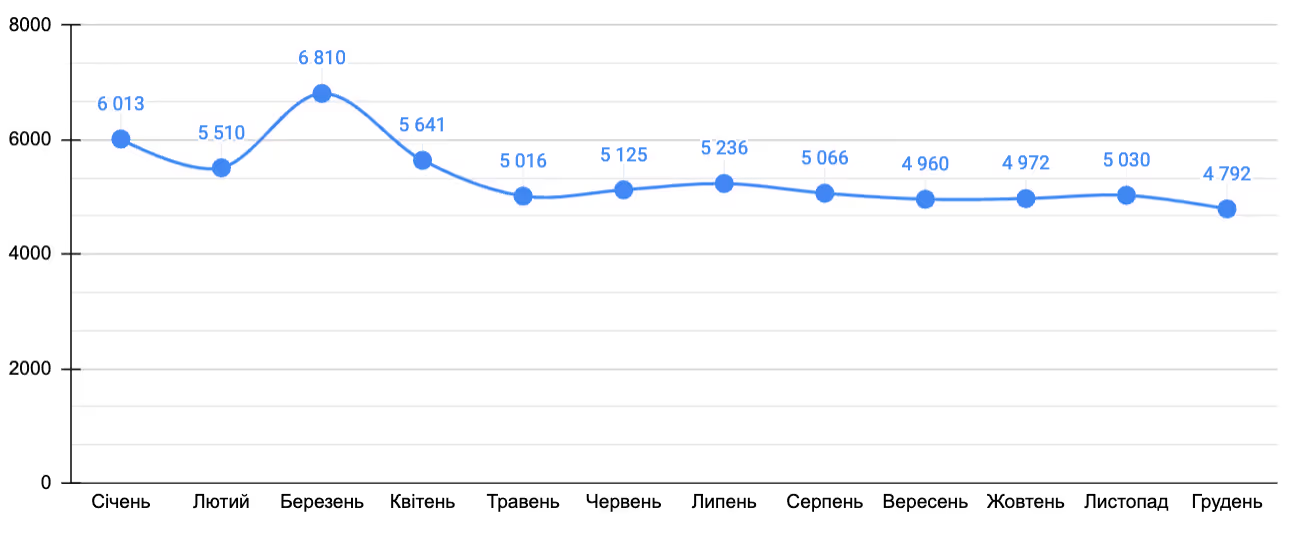
What we did:
After the March 2024 Core Update, it became clear that superficial optimization no longer works. Even large sites with a history can lose ground if the structure is confusing and the content is irrelevant or duplicated.
Launch date: June 20, 2024
Duration: 7 days
Focus: improving search spam detection
In June, Google released another anti-spam update that affected websites around the world. The main focus was on improving the AI-based SpamBrain system, which was taught to better detect manipulative practices and new types of spam in the SERPs.
Important: this update is not related to Google's policy on site reputation abuse.
Google recommends that you first review your compliance with anti-spam policies. This is the basis for restoring positions in the long run.
SEO analyst Cyrus Shepherd analyzed 50 news sites to find out what factors could have influenced the loss of traffic after the June and subsequent Google SEO latest updates.
Factors with a significant correlation with traffic decline:
Sites with a large number of anchor variations in internal and external links lost more traffic.
Correlation: -0.337 and -0.352
Recommendation: Reconsider aggressive linking, especially with spammy/unnatural anchors.
Paradoxically, the winners of the updates had older pages (average age - 774 days), while those who lost traffic updated content too often (average age - 273 days).
Recommendation: update content only when it is really needed - not just for a “fresh” date.
Headlines with numbers and adjectives lost more traffic.
Correlation: -0.297 (numbers) and -0.420 (adjectives)
Recommendation: give preference to simple and clear headlines.
Excessive use of structured data was negatively correlated with traffic.
Correlation: -0.314 and -0.381
Recommendation: do not overload pages with Schema markup - it can look like manipulation.
Among the parameters that did not show a significant correlation with the drop in traffic:
Google may lower rankings for excessive optimization and manipulative tactics.
Launch date: August 15, 2024
Duration: 19 days
Completion: September 3, 2024
The next Google update took place in August and was a continuation of Google's course to improve search quality after a wave of criticism that accompanied the Helpful Content update in September 2023. At that time, a significant number of small publishers lost their positions — often unfairly. The new update partially corrected this situation.
Some websites that were affected by previous major Google algorithm updates have partially regained their positions.
Google has improved its recommendations for creating useful content, once again emphasizing user benefit.
Recommendations after the update:
After the update, Google's Search Liaison, Danny Sullivan, gave an interview to Barry Schwartz. Here are some important points:
One of the most telling examples of how this update affected the performance of a website in our experience concerns a blog in the electronics niche. After the August update, the client's website traffic began to gradually decline — and this decline intensified with each subsequent update.
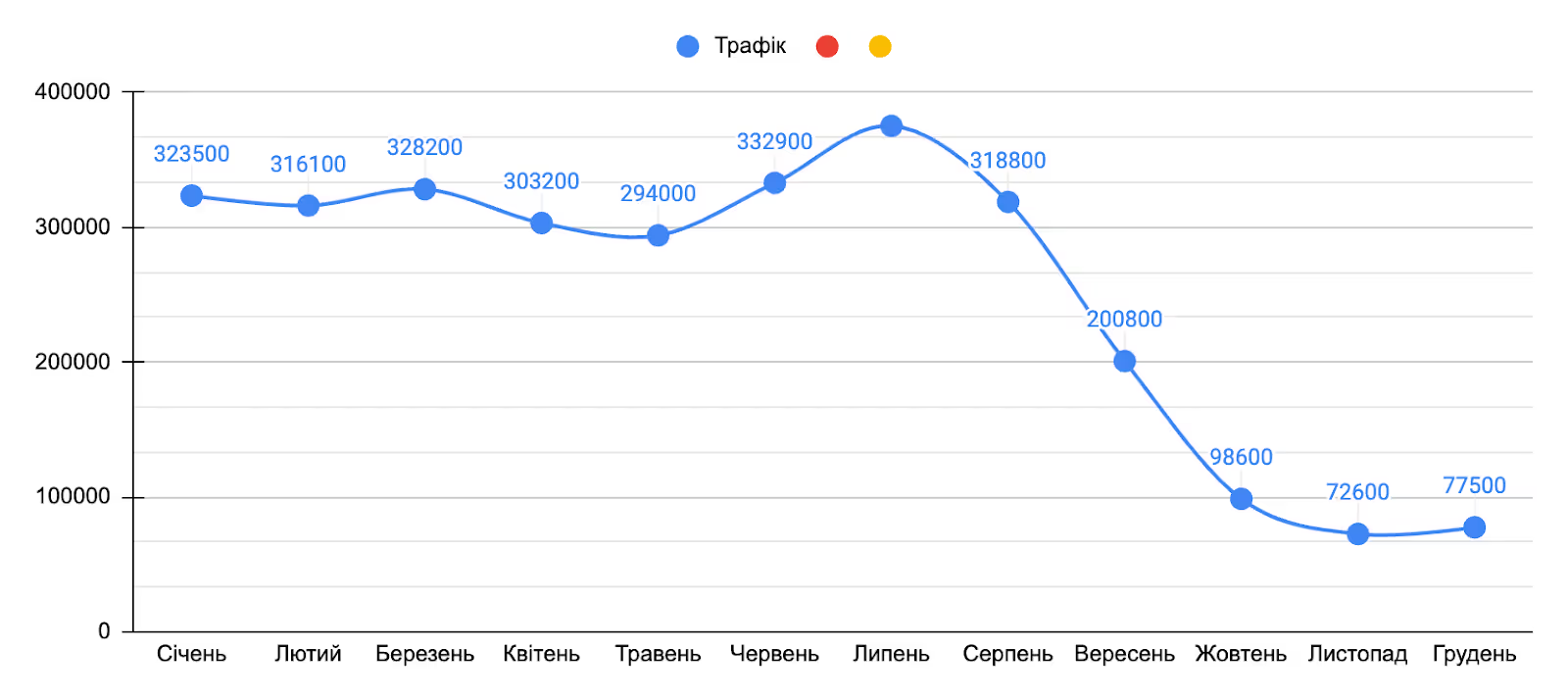
Reason: Google stopped associating some of the content with the main theme of the site — so-called “non-thematic” articles simply disappeared from the top rankings.
What we did:
We developed a new content strategy focused solely on relevant topics. Now, content is created and optimized to clearly match the niche and search expectations of users.
Work is currently underway to restore traffic and rankings to the site.
Launch: November 11, 2024
Duration: 24 days
Completion: December 5, 2024
This update was aimed at combating excessive SEO optimization that does not benefit visitors. The focus is on the real value of content, not technical tricks.
Link to official documentation: Google System Release Notes
Key changes:
Conclusion for websites: it's time to move away from “SEO for SEO's sake” and focus on usefulness, deep content, and structure.
Our case study: a website in the marketing niche
After the update, one of the projects experienced significant changes:
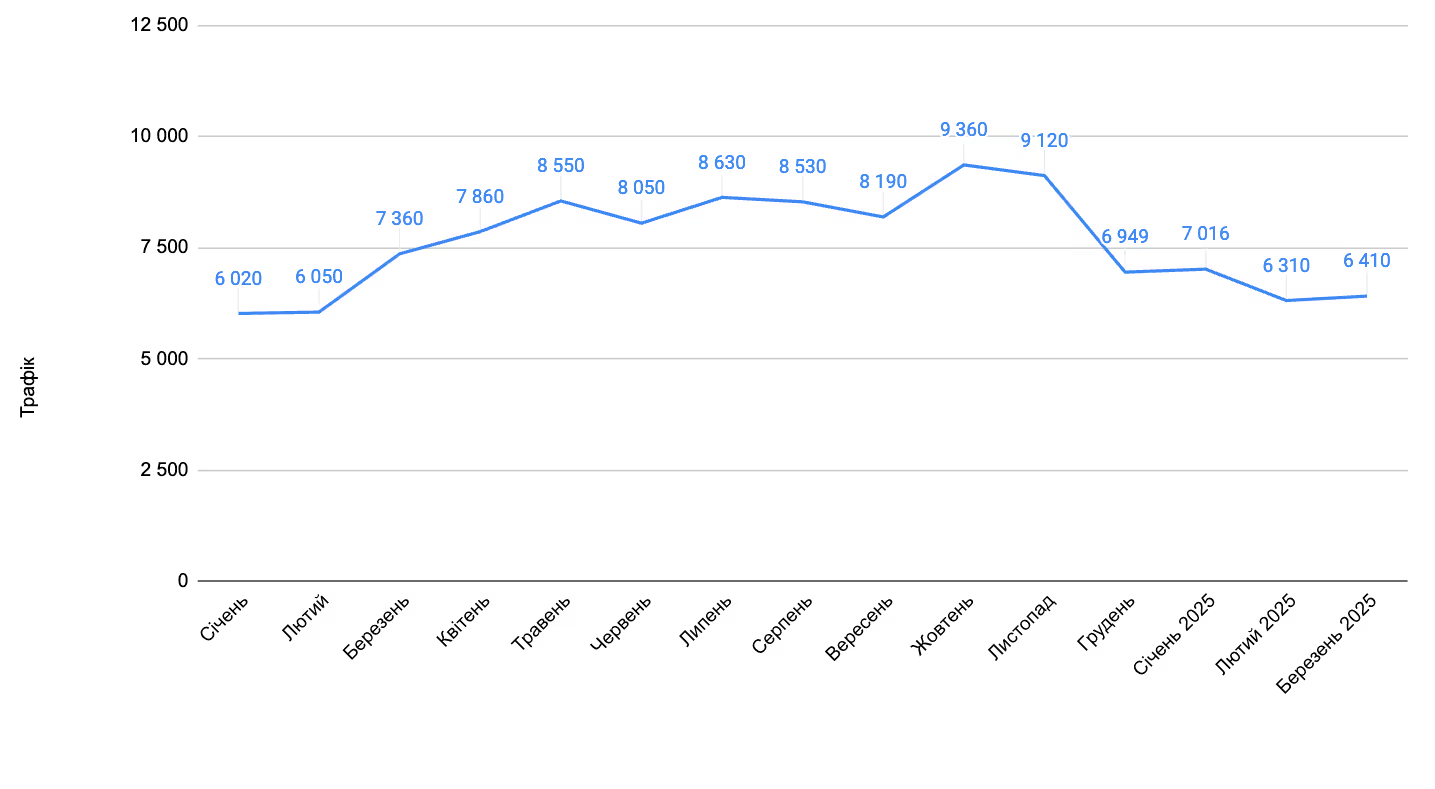
Work to restore traffic to the site is currently ongoing.
Launch date: December 12, 2024
Duration: 6 days
Completion: December 18, 2024
This is Google's fourth and final major update in 2024. Its goal is to improve ranking systems so that search results are even more relevant and useful.
Interesting fact: the update was launched just a week after the November update was completed. Google explains the frequency of releases by the gradual updating of various core systems.
According to analysts, volatility in searches was higher than in November but lower than in August and March.
Link to official documentation: Google System Release Notes
SISTRIX reported that the first changes appeared on December 15, three days after the official launch.
Additional factors:
The Google update coincided with:
It is not yet clear whether these events are directly related to the update, but domain transfers always affect search visibility.
Launch date: December 19, 2024
Duration: 7 days
Completion: December 26, 2024
This broad update covered most languages and significantly changed the positions of sites with spam characteristics. The goal is to strengthen the detection of search spam, including new types.
Important: the update did not affect link spam or site reputation abuse policies — these continue to be enforced through manual penalties.
Affected websites should:
In his video, Glenn Gabe confirms that the December update affected more than just classic spam. Among those affected are:
In practice, we are already seeing cases where traffic to eCommerce sites has declined after the latest Google algorithm updates.
It is not yet possible to restore positions, as this is not a matter of temporary filters, but of fundamental changes in ranking principles.

Niche and branded websites are increasingly appearing in search results, while general-interest projects are gradually losing ground — even those that previously held a strong position at the top.
This once again confirms that Google is consistently moving toward personalized and specialized search results.
Start: March 13, 2025
End: March 27, 2025
Probable testing: February 26 or March 5
Google has announced a new core update to its search algorithm that affects all types of content. The goal of the update is to further improve the quality of search results, with an emphasis on relevance, usefulness to the reader, and reducing the presence of low-quality content.
The SEO community suspects that the first changes to SERP began to be tested even before the official launch. The most likely dates are February 26 or March 5.
On X and forums, SEO experts note that sites with optimized EEAT and high-quality UX have seen growth. On the other hand, sites with low-quality content have suffered.
Actions for webmasters:
During the March 2025 Core Update, many sites experienced instability in their rankings — positions and traffic fluctuated from day to day. This is a typical scenario for major updates, when Google “fine-tuned” signal after signal and tested the results in real time.
A typical situation: a website initially grows, then declines.
Case study: Our client's website in the truck niche saw a noticeable increase in traffic at the start of the update. However, within a few days, traffic stagnated and then declined. This behavior is not an exception, but rather a sign that the algorithm is still “checking” relevance in dynamics.
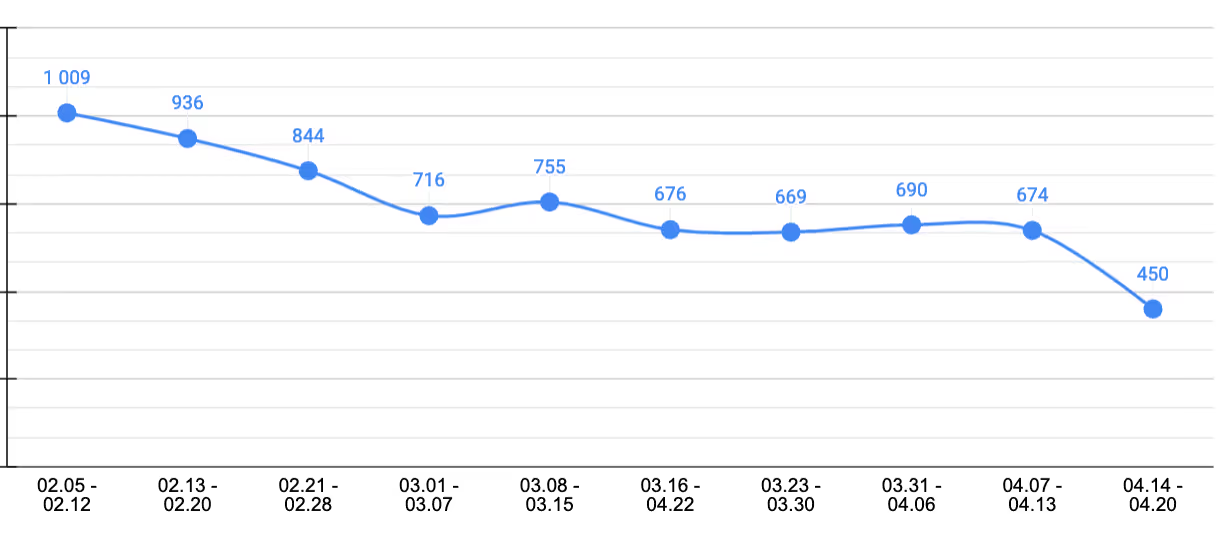
1. Create content focused on users, not algorithms
High-quality structure of materials – use a clear hierarchy of headings (H1, H2, H3), bulleted lists, short paragraphs, and highlighting key points.
2. Ensure the relevance, accuracy, and expertise of materials
3. Use E-E-A-T as the basis for your content strategy
Google's new SEO updates this year will place even greater emphasis on quality content based on experience, expertise, and trust. Websites that publish useful, structured, and verified content will rank higher in search results and generate more traffic. Make sure to keep a hand on the pulse, or partner with someone who does.
You may also like
Choose quality and trusted services to improve the presence of your company on the Internet, and feel free to contact our UK team if you have any questions.

When most people hear “SEO,” they think of Google. That’s not a surprise as it holds almost 90% of the market!

Get tips on making the most of Google Local Service Ads to attract nearby customers and grow your business.
If you are using targeting on Instagram and Facebook, you need Meta Pixel.

How the Meta Andromeda algorithm works and why creatives are becoming the central component of advertising.
We at Promodo are ready to help you improve your performance across all digital marketing channels.
Get started
